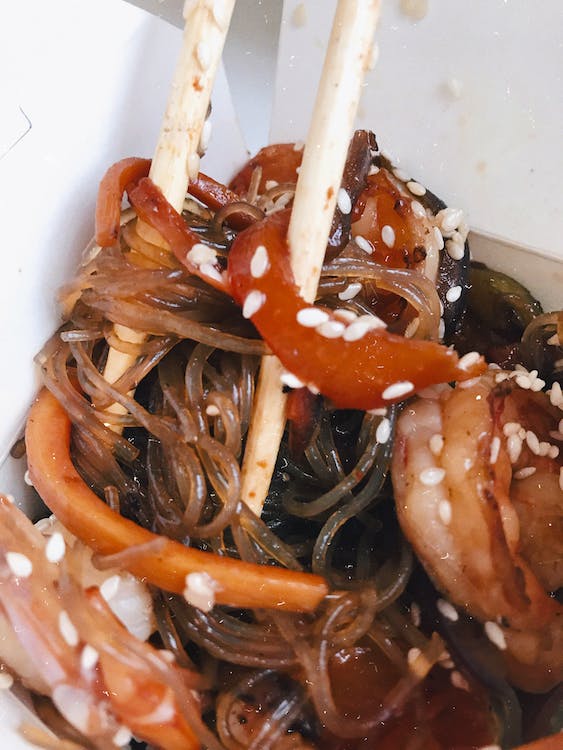Peoples have their own cuisines. They contain different foods and dishes that are interesting for people who’re fond of cooking and trying new cuisines. And before tasting a certain diet, you should be aware of its benefits and risks. Yes, each cousin has its pros and cons. There is no ideal one.
So today, we’ll discuss the Asian diet. We’ll start with the pros and finish our article with the cons of such cuisine.
Benefits
Asian food has many benefits that make it worth tasting. Let’s explore them in detail.
Vegetables Are Put in Central Position
If you try Russian cuisine, you’ll see that meat takes the central position. When it comes to Chinese food, for example, meat is an additional component because Chinese people pay attention to vegetables. They believe that the number of vegetables can be balanced with a small amount of meat.
Asian Food is Low on Sugar
Have you noticed that people in Japan, China, and Thailand are tiny? For example, only 3.4% of Japanese women and 3.8% of Japanese men have obesity. And it’s for a reason. The fact is that Asian food is low on sugar. In addition, Asian food doesn’t have many fats and refined carbs. As a result, when eating Chinese or another cuisine, you don’t overstuff your body, and you don’t receive too many calories that cause you to become overweight and obese.
Moreover, if you try Asian sweets, you’ll get shocked as you consider them… not sweet. And vice versa: if Asian people try American or European treatments, they will be astounded with the level of sugar. They refuse such food as it’s unpalatable for them.
Some people say that the high price of food is a crucial factor for tiny Asians; yes, it’s one of the reasons, but it isn’t so important.
Healthy Cooking Techniques
Usually, people use high-fat cooking methods. As a result, we receive additional calories after our dishes are cooked. Asian people found solutions for how to avoid adding calories and save food healthily. The deal is that they’ve turned to low-fat techniques. For example:
- stir-frying;
- steaming.
Also, they use salt-free seasonings. For instance:
- ginger;
- garlic;
- fresh herbs;
- chilies.
Asians are fond of fast cooking without using a big amount of oil. Thus, such dishes are useful for your heart; and again: you don’t receive too many calories.
When compared to American food, we’ll see a lot of fats in dishes. Also, fast food is called ‘junk food’ for a reason: consuming french fries, burgers, and nuggets, we perceive our daily calories intake. To burn extra calories, we have to lead an active lifestyle. But the fact is that in 2021, too many people lead a sedentary life. And as a result, they don’t have time to keep in shape.
Risks
So don’t be scared of the cons of such a diet. As you know, there are controversial approaches to different diets and foods. Butter is good, and butter is bad. A vegan diet is good, and a vegan diet is bad. So your task is to decide for yourself whether such risks are okay for you or not.
Too Much Rice
As you know, current Asian dishes contain too much white rice. It’s yummy, but the fact is that when eating it too much, the risk of getting type 2 diabetes is increasing. Brown rice is healthier but not as tasty as white one.
Too Much Salt
When we consume too much salt, we can feel sick. Asians add this component to every dish and eat two or even three times more salt than humans have to.
Headache
Unfortunately, Asian food has monosodium glutamate (MSG) that causes headaches. It takes a long time but doesn’t require a cure. However, you can lose priceless minutes. For example, instead of doing their assignments, students are forced to sit and wait until the pain passes. As a result, they lose time, and then, they think, ‘Oh my, can I pay someone to do my homework?’
Therefore, be ready for headaches.
MSG Can Enhance Your Waistline
And the last bad news. Asian ingredients contain MSG, as we’ve said above, and the fact is that if you consume too much MSG, your waistline can be enhanced. Therefore, when ordering Chinese or another dish in a restaurant, make sure that it’s MSG-free if you’re trying to lose weight. It isn’t bad to consume such a component, but it’s better to control its amount in dishes.
Final Thoughts
So now you know the benefits and risks that Asian cuisine hides. You can try some dishes and analyze your feelings. Do you feel good? Do you have a stomach ache after tasting vegetable fried rice? Maybe Thai green curry is untasty for you? Yes, at first, new cuisine can be unaccustomed, but if you feel sick after tasting it, there is no point in continuing to do it.
